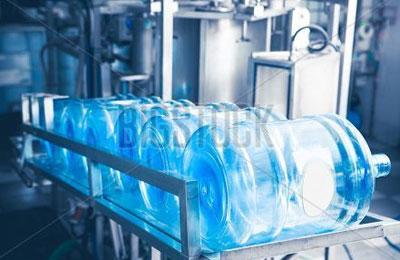
Clean water innovation: the Mena solution
Dubai, August 7, 2014
By Jack Dyer, S Hagerty Le May
Several industries, such as oil and gas, spend billions of dollars yearly in order to manage, handle and remediate produced water as effectively as possible. These huge costs, however, do not include the value of hydrocarbon reserves, which are made economically inaccessible because of related water costs. Even small improvements in the economics would substantially save costs and increase economically producible hydrocarbon reserves.
Mena is the most water scarce large region of the world. The water availability in this region is only 1,200 cu m per person/year compared to 7,000 cu m per person/year in other geographical regions. Electricity is also less available in this region. In order to save related costs and provide enough clean water sources, innovation is needed wherever the electrical/clean water infrastructure is insufficient.
The water demand for 2020 for the GCC countries is expected to rise as the expanding middle class adopts an increasingly water-intensive lifestyle (these countries will be among the world’s highest per-capita users of water).
Ground water resources will be limited. Thus, clean water will become even more scarce, likely extremely scarce, throughout the GCC. Since the bulk of the region’s water use is directed into agriculture (which provides less than 5 per cent of GDP) and the industrial demand for clean water is likely to rise faster than overall economic growth, the region will have to rely increasingly on desalinated water, which is expensive and energy-intensive, and will become more so in the future.
More water innovations needed in the Mena region
To initiate this discussion we'll need to accept a simple working definition of creativity as the act of coming up with a new idea, and innovation as the act of reducing that new idea to useful practice or purpose. Such activity can more measurably help the health and welfare of a people (and their nation) when that useful practice or purpose is commercial in nature. In the Gulf and the greater Mena region, this is especially so if the commercial innovation concerns the production of more usable water by industry and/or drinking water by people, something fundamental to civilization and societies.
“We're not talking about gigantic seawater distillation and/or wastewater recycle-treatment factories along with their pipeline transportation systems that take many years and hundreds of millions to billions of euros or dollars to bring online before able to deliver clean water. That's already been accomplished, and more capability is being planned or already under construction, but it will take even more time and increased investment,” said the authors of the report.
The cornerstone innovations - changing seawater into drinking water/treating waste water- in addition to the development of the electrical energy industry - have enabled the growth and modernization of the peoples of the Region and much of the urbanization of their societies.
The practical reality is that wastewater treatment, drinking water from the sea and/or electricity supply are still absent ("off-grid") in many geographical areas throughout the Region. It is possible that expansion of those infrastructures will become incrementally more uneconomical due unsustainable subsidization as they are further expanded in the future.
The core of this discussion is about what new ideas need to be innovated in the Region so that clean water can become more readily available wherever the electrical/clean water infrastructure is insufficient or absent. This is especially true for situations where the scale of the need for clean water wouldn't necessarily engender financing by a regional government.
A water innovation reality
A proven, patented, commercial innovation that can treat any source of unclean water (from domestic or industrial waste or from the sea) without any need for electrical power at all does exist. It is experiencing widespread adoption throughout the Americas, as well as the Pacific Rim and elsewhere.
However, this innovation is non-existent in the Region, and that is the fundamental initial innovation need in Mena: recognising its utility, identifying where this innovation could/should be employed, and just how to make that regional commercialisation occur. – TradeArabia News Service
Jack Dyer is the founder of Synergics, a leader in sustainable energy systems and S Hagerty Le May, is the founder and chairman of International Alliance Associates.







